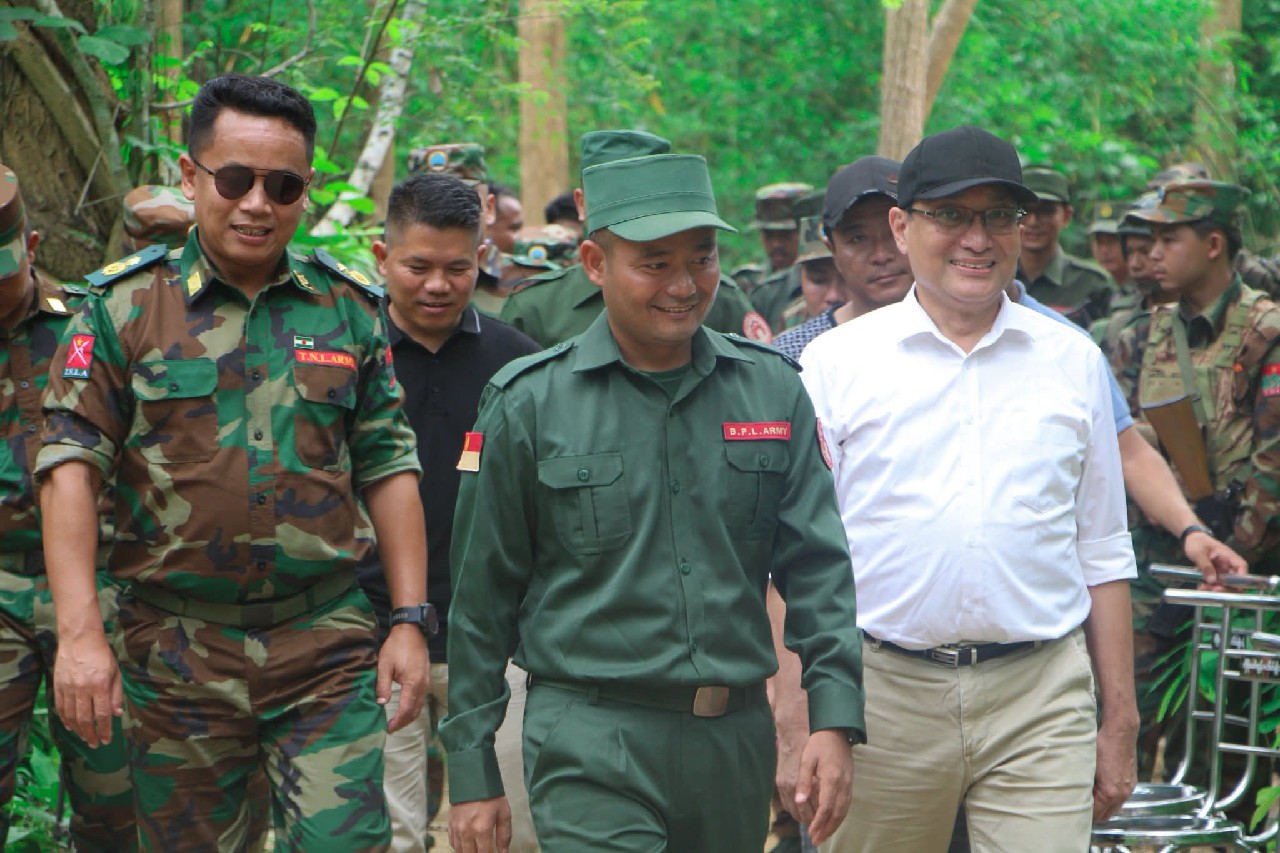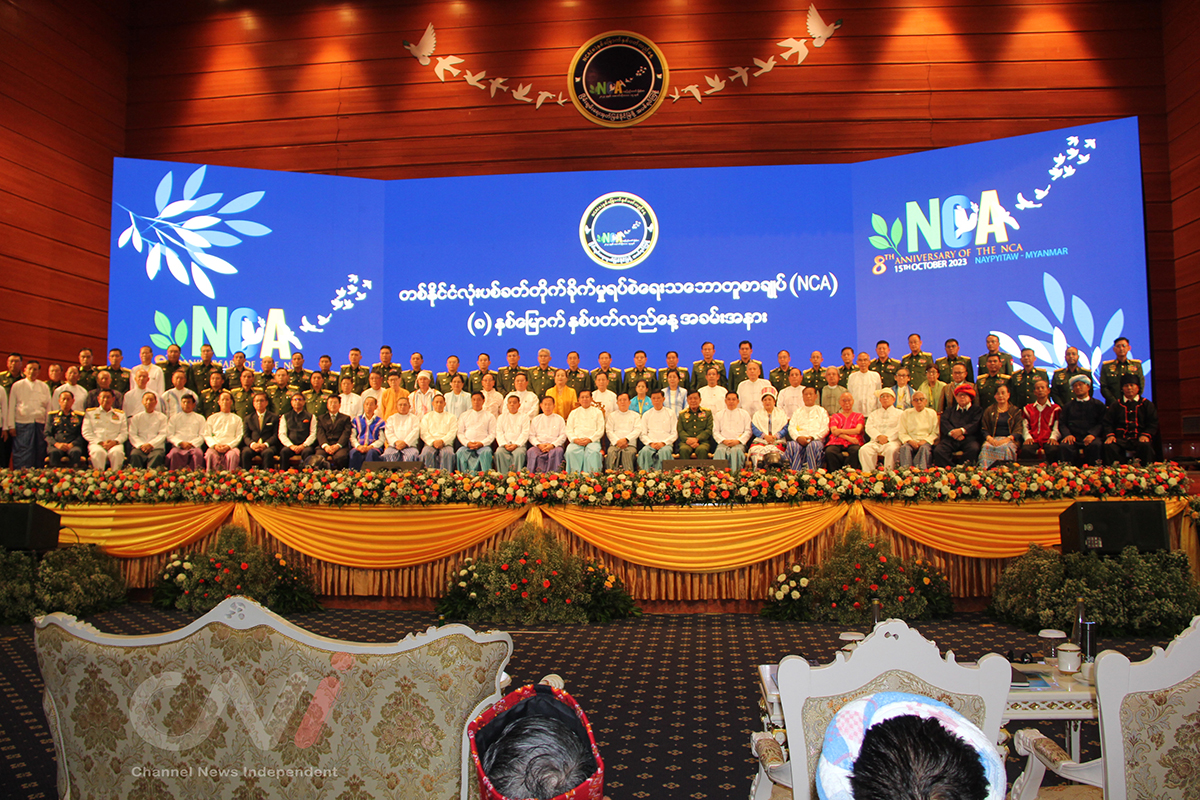CNI News
15 October 2025
Political and military analysts have pointed out that Myanmar is currently experiencing a leadership vacuum, which has led to fragmentation among those attempting to resolve the country’s ongoing political crisis and armed conflicts.
They emphasized that urgent international accountability and protection mechanisms are needed to prevent further escalation of the crisis and to safeguard civilians. U Kyaw Moe Tun stated at the United Nations that ASEAN alone cannot shoulder such a massive responsibility.
U Myo Kyaw, from the United Nationalities Alliance (UNA), also told CNI News that not only is the general public suffering, but opposition political forces are also deeply divided and lacking leadership.

Leaders of BPLA, TNLA, and NUG seen together
He said: “It’s fair to say that the people have done their part — they’ve taken responsibility. But now, as the people continue to suffer, the opposition political forces are fragmented, and unity is very weak. As a result, leadership has been lost. That raises the question of who can truly guarantee and represent the people. We continue to speak out within our own capacity, but it’s not enough yet. Therefore, to give real assurances to the people, we need both public discussions through the media and the establishment of a stronger alliance through common agreements. Through such alliances, I believe the people will have a voice.”
Myanmar’s ongoing crisis began on February 1, 2021, when the military ousted the National League for Democracy (NLD) government, accusing it of failing to address alleged voter list irregularities in the 2020 general election and of attempting to form a new government. The coup sparked nationwide protests and armed resistance movements, which continue unresolved to this day.
Political analyst U Htet Aung Kyaw told CNI News that while there are many individual leaders and factions, there is currently no single leader accepted by all sides.

Leaders from international organizations, EAOs, and the Myanmar Tatmadaw
He said: “There are leaders everywhere — everyone has their own. But what’s really missing is a leader who can be accepted by all. Everyone has their own leadership figure, but there’s no one who can unify everyone under a single direction. So for now, there’s a leadership vacuum. If we talk about elections, for instance, which is better — having an election or not? Having an election is better. And which is better — having a parliament or not? Having a parliament is better. Everyone knows and accepts that. The issue now is how to distinguish between what’s genuine and what’s fake. If we don’t accept that, then what will we do next? It’s already been five years — what has become of us now? That’s the measure we should reflect upon.”
Analysts noted that Myanmar still lacks any concrete political agreements, and the peace process remains stalled.
Likewise, while the Myanmar military continues to hold its position as a central actor in the political dialogue, there is no shared understanding among opposition and resistance forces regarding who should lead or represent them in negotiations.




